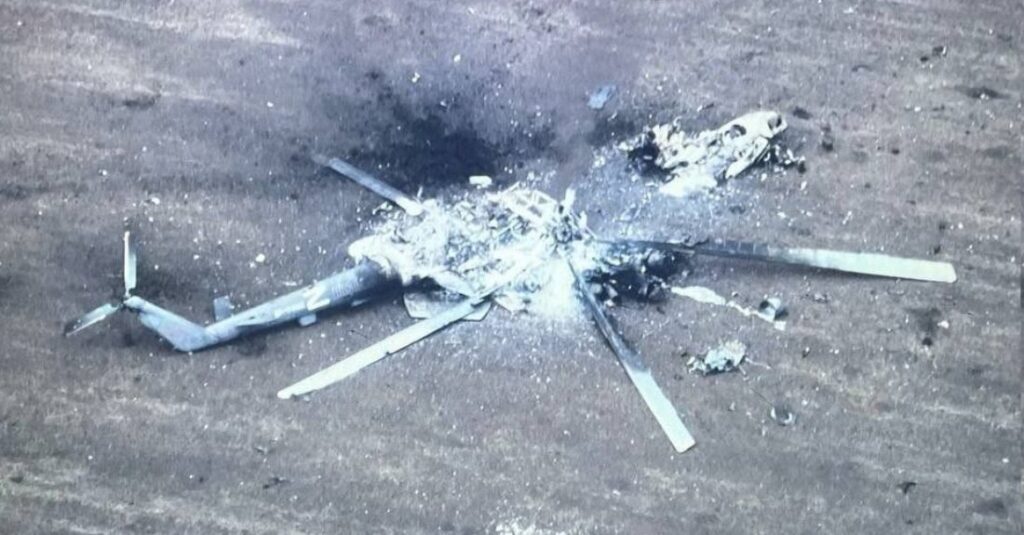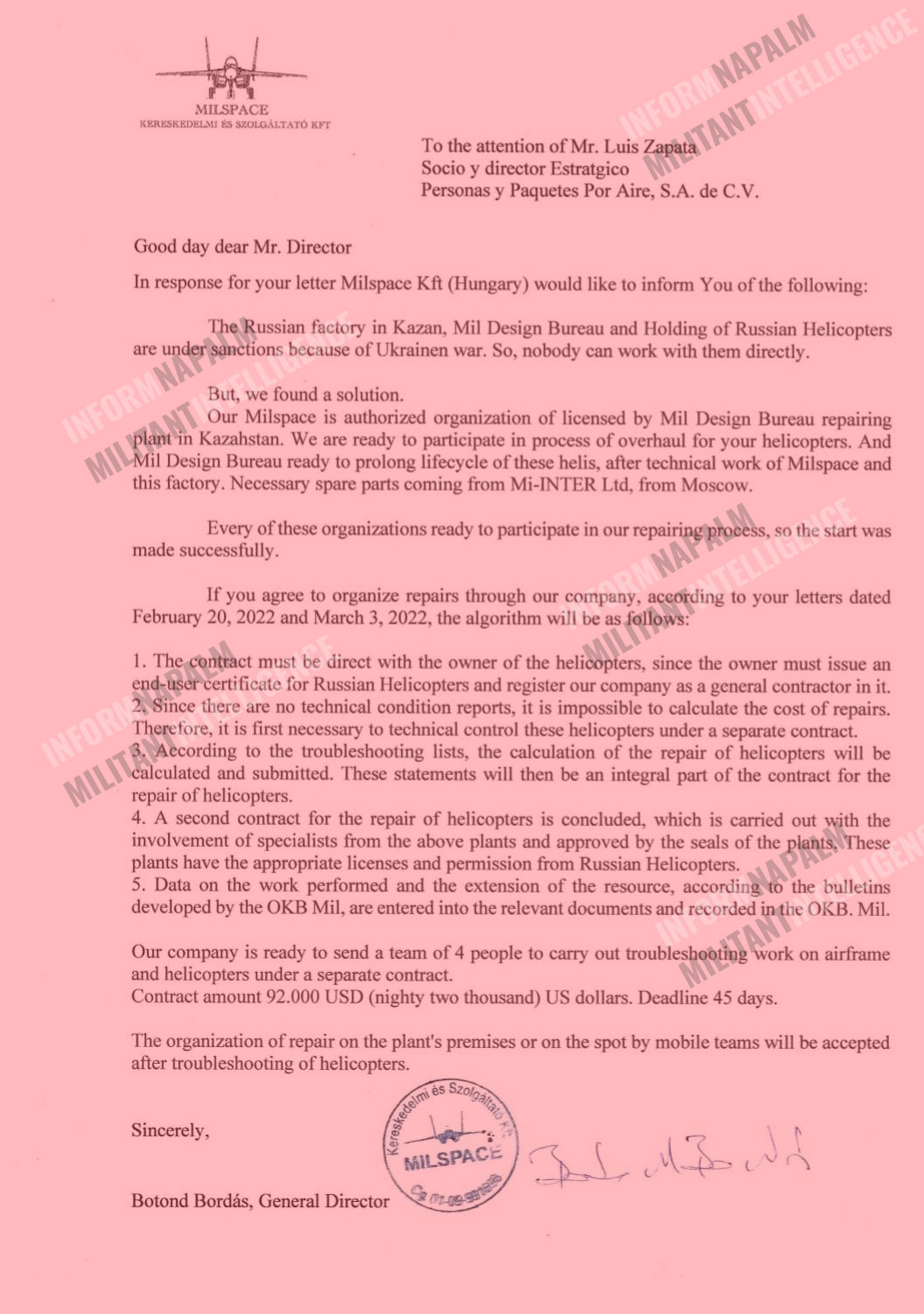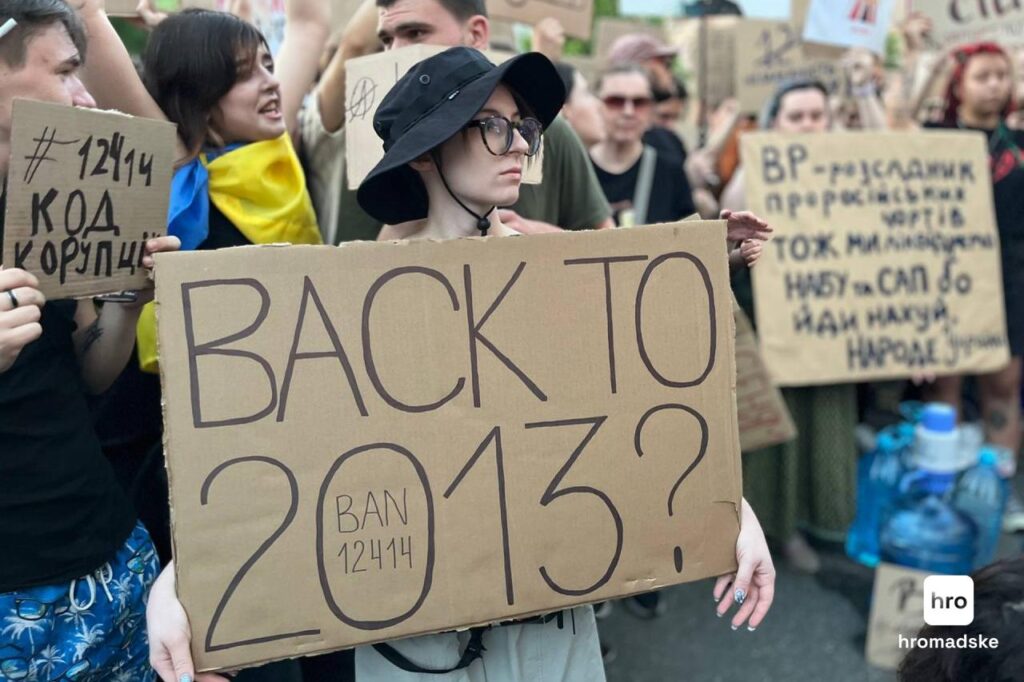Inform Napalm: Hungary joins Kazakhstan in shadow network to repair Russian helicopters

Hungary helps Russia by routing helicopter repairs through Kazakhstan while sourcing spare parts from Moscow, InformNapalm reports. InformNapalm is a volunteer intelligence community known for cyber operations exposing Russian military networks. Their latest release reveals a Hungarian company, Milspace Kft, offering a sanctions workaround for Russia’s Mil Design Bureau — the producer of Mi-series helicopters actively used against Ukrainian troops.
Leaked document exposes Hungary’s Milspace Kft in sanction evasion scheme
InformNapalm, working with the Militant Intelligence group, disclosed new data from the OpsHackRussia’sDay cyber operation. The dataset comes from hacked corporate correspondence of Russian defense industry companies. The latest document shows that Milspace Kft sent an official proposal to the Mexican company Personas y Paquetes Por Aire SA de CV. In this letter, Milspace Kft explains that Russian helicopter factories are under sanctions and offers a route to bypass these restrictions.
The leaked letter states:
“The Russian factory in Kazan, Mil Design Bureau and Holding of Russian Helicopters are under sanctions because of Ukrainen (original spelling, – Ed.) war. So, nobody can work with them directly. But we found a solution”
Milspace Kft proposes to act as the formal contractor while repairs would be done in a Kazakhstan plant licensed by Mil Design Bureau.
“Our Milspace is authorized organization of licensed by Mil Design Bureau repairing plant in Kazahstan. We are ready to participate in process of overhaul for your helicopters,” the leaked letter reads.
Spare parts would come from Moscow, specifically from Mi-INTER Ltd. The work would be supervised and coordinated with Mil Design Bureau and Russian Helicopters, both parts of Rostec, a large Russian state-owned conglomerate.
“Every of these organizations ready to participate in our repairing process, so the start was made successfully,” the document states.
Evidence links Hungary to Russian helicopter support
InformNapalm reports that this letter details a service package worth $92,000. The plan includes a team of four “to carry out troubleshooting work on airframe and helicopters under a separate contract.”

“Hungarian Prime Minister Viktor Orbán has consistently shown loyalty to the Kremlin, delaying EU sanctions and blocking military aid to Ukraine through NATO and EU structures. Therefore, Milspace Kft’s involvement in these operations aligns with Budapest’s geopolitical position, which often conflicts with the core interests of both the EU and NATO,” Inform Napalm says.
Risks for EU and NATO security
InformNapalm warns that Hungary’s involvement undermines NATO collective security. The practice ensures that sanctioned Russian helicopters remain operational, despite restrictions. This leak also highlights a broader pattern of using Kazakhstan as a hub for maintaining Russian equipment, similar to previous findings from the #SU30Leaks series.
Hacktivists call on journalists and European officials to investigate these sanction evasion networks before they grow further. They note that more documents from the OpsHackRussiasDay operation will follow.



